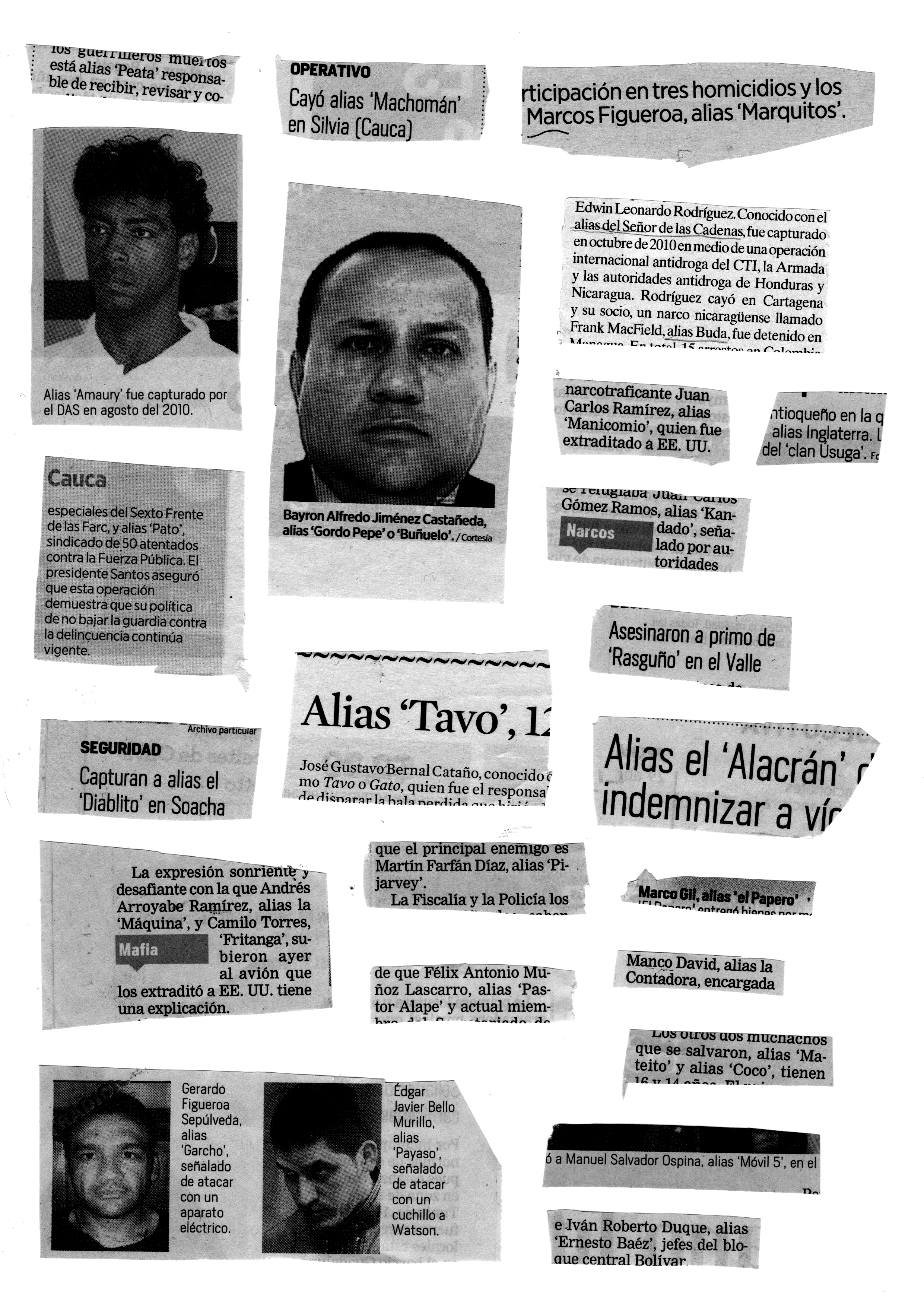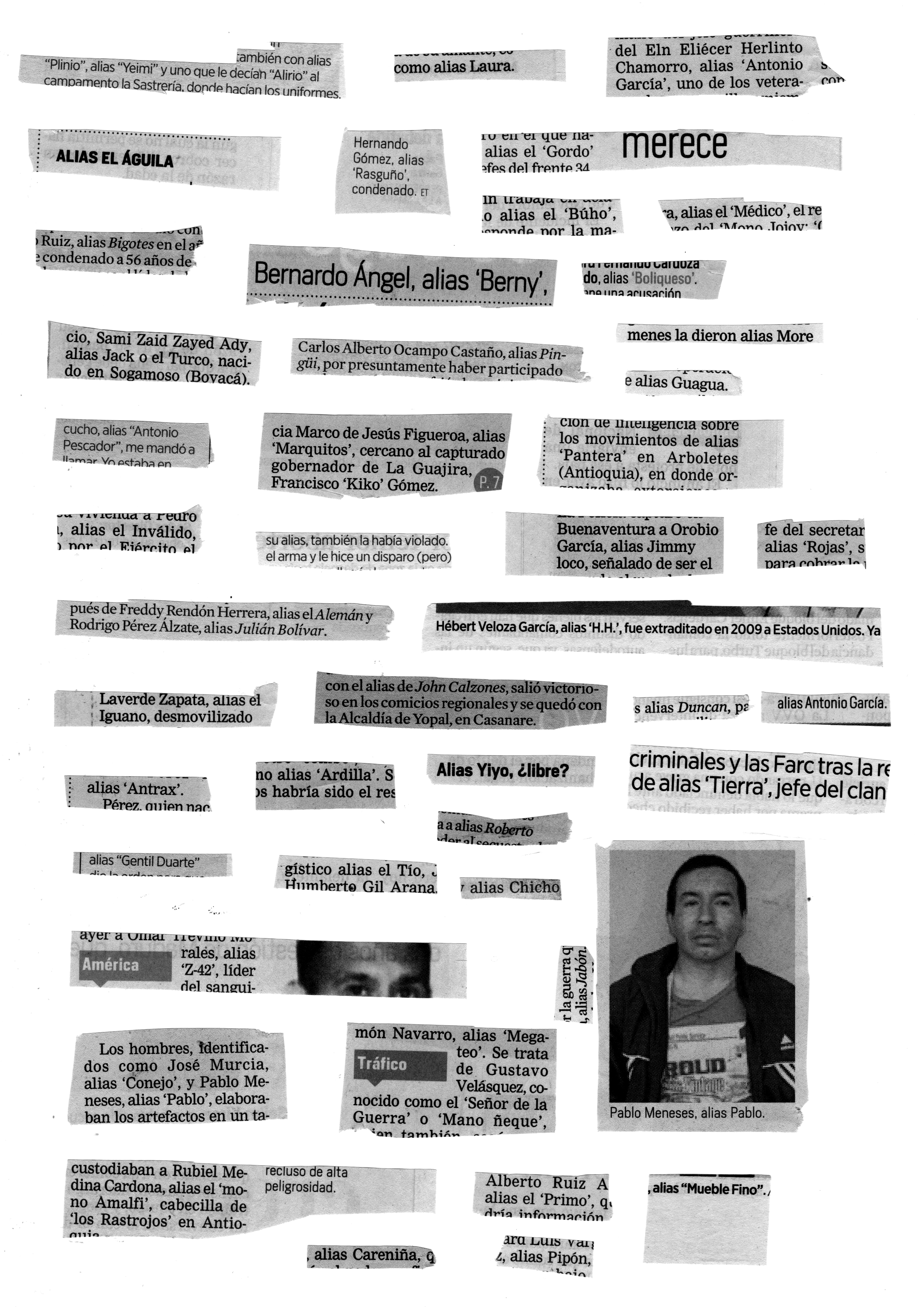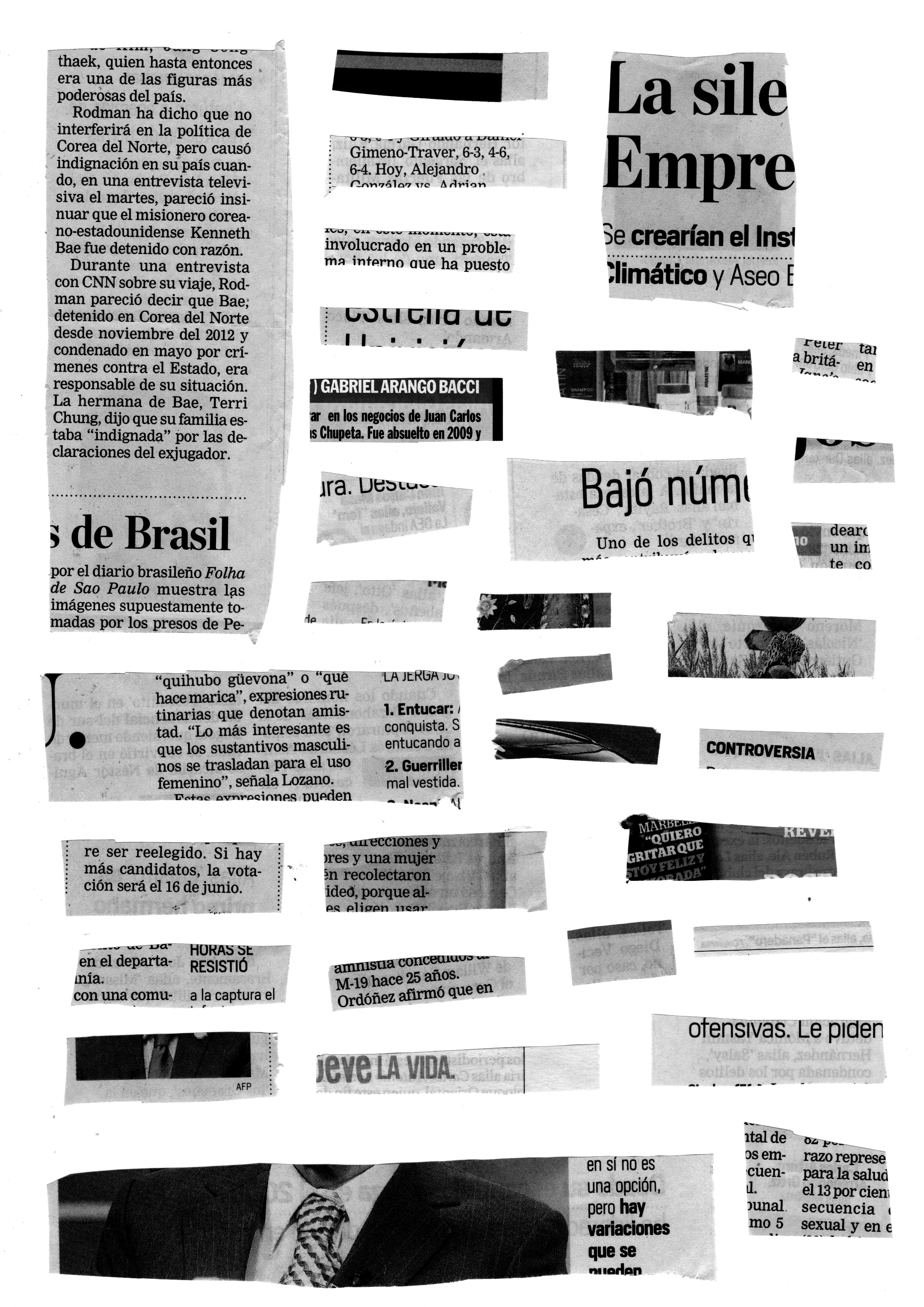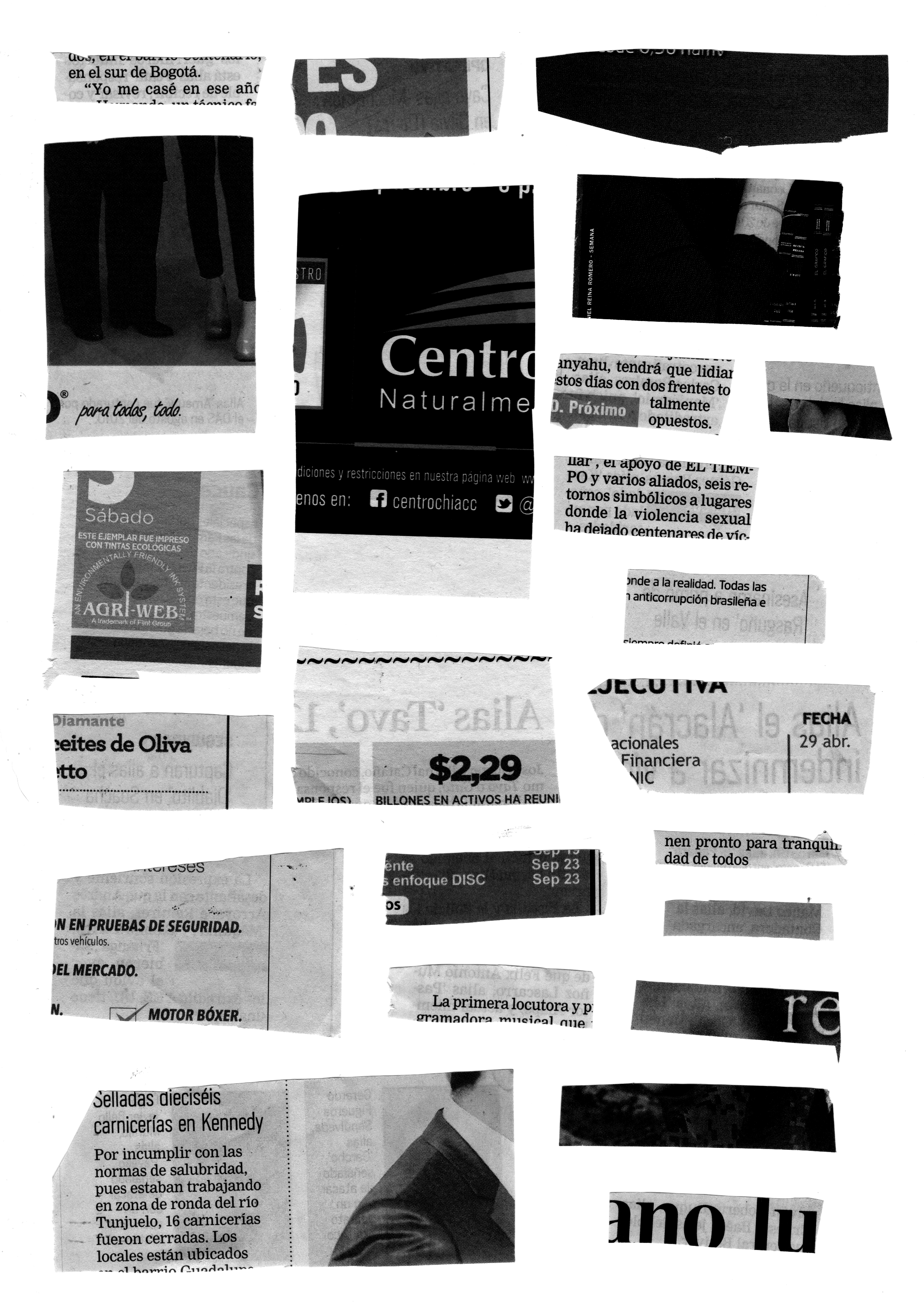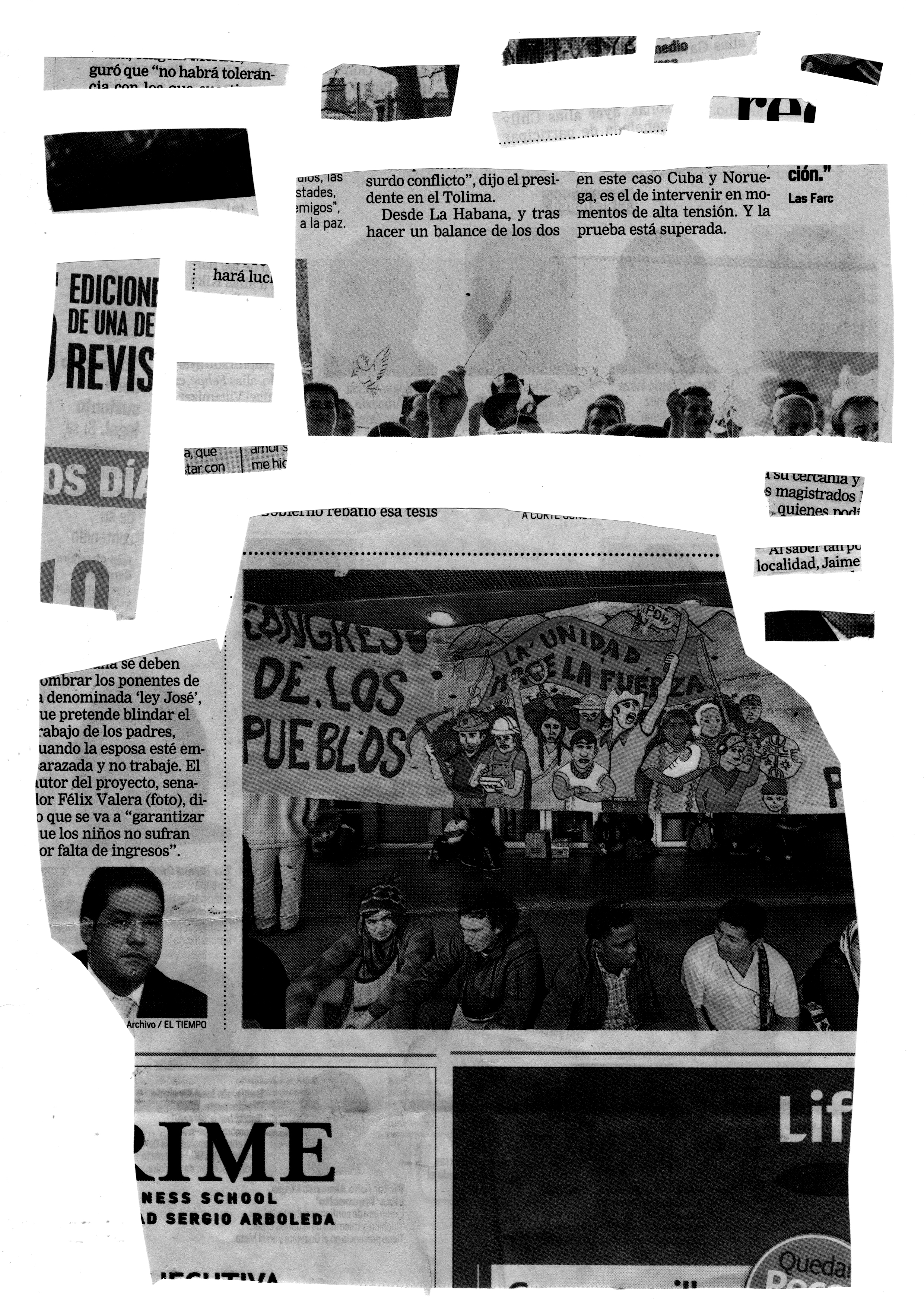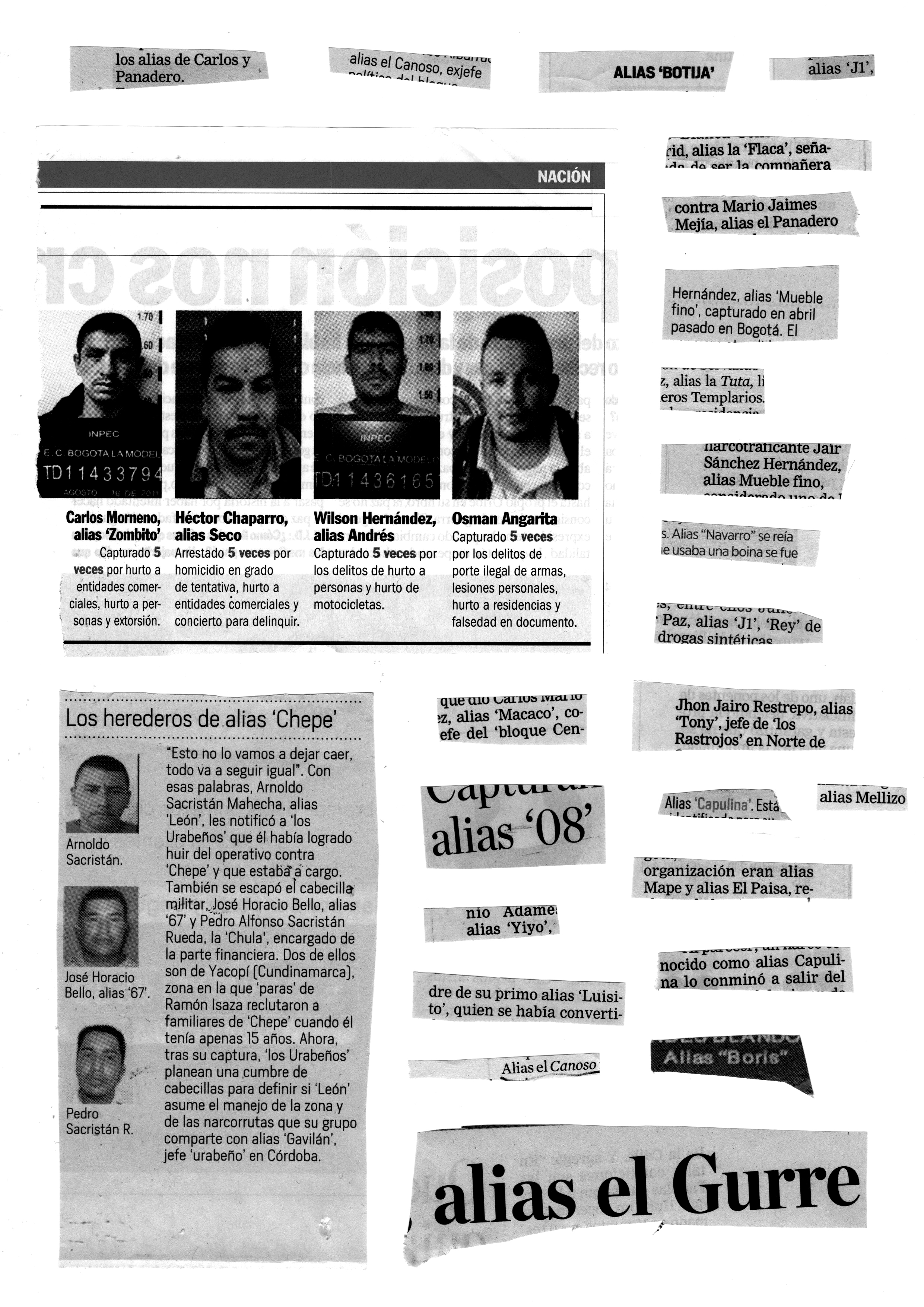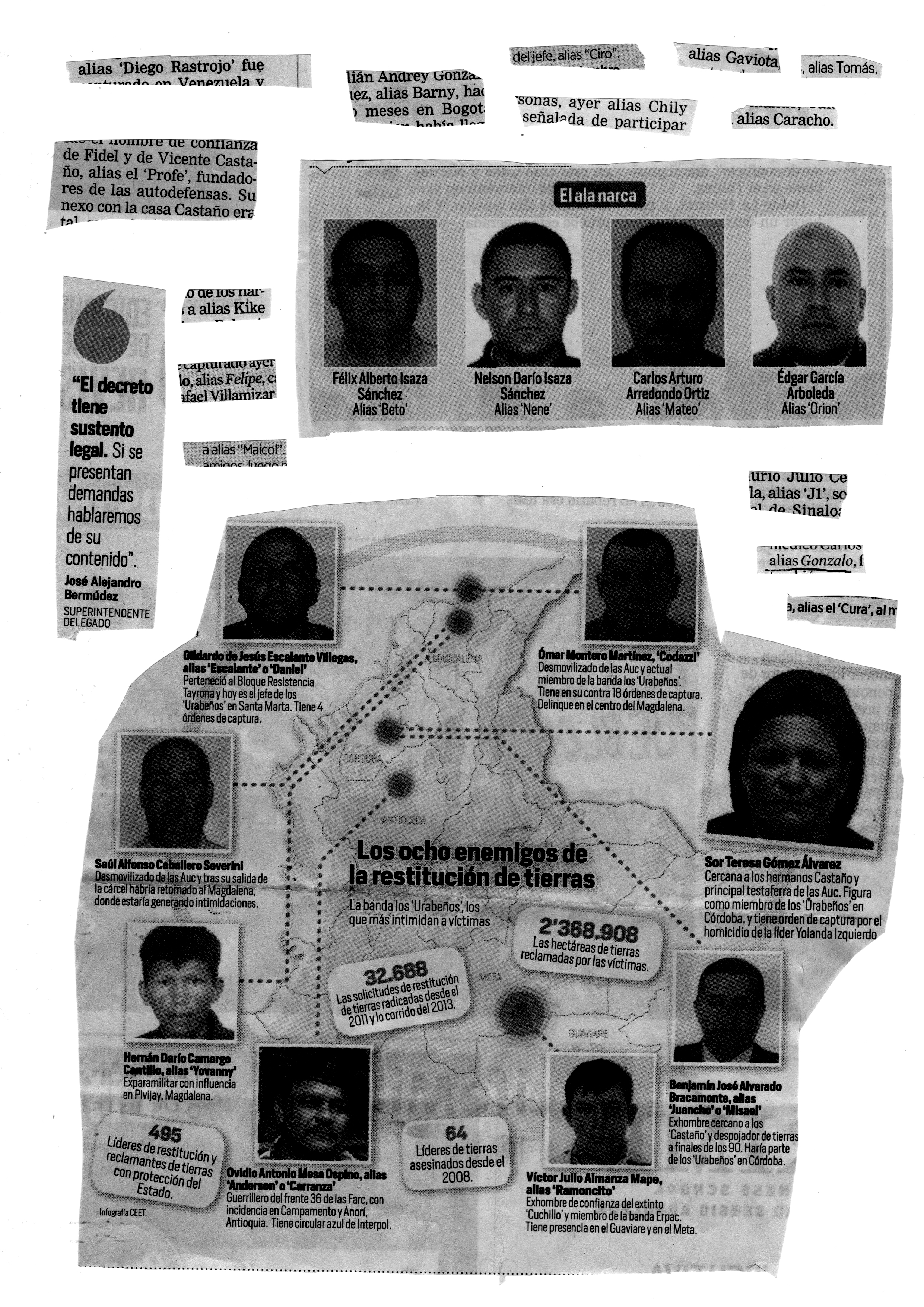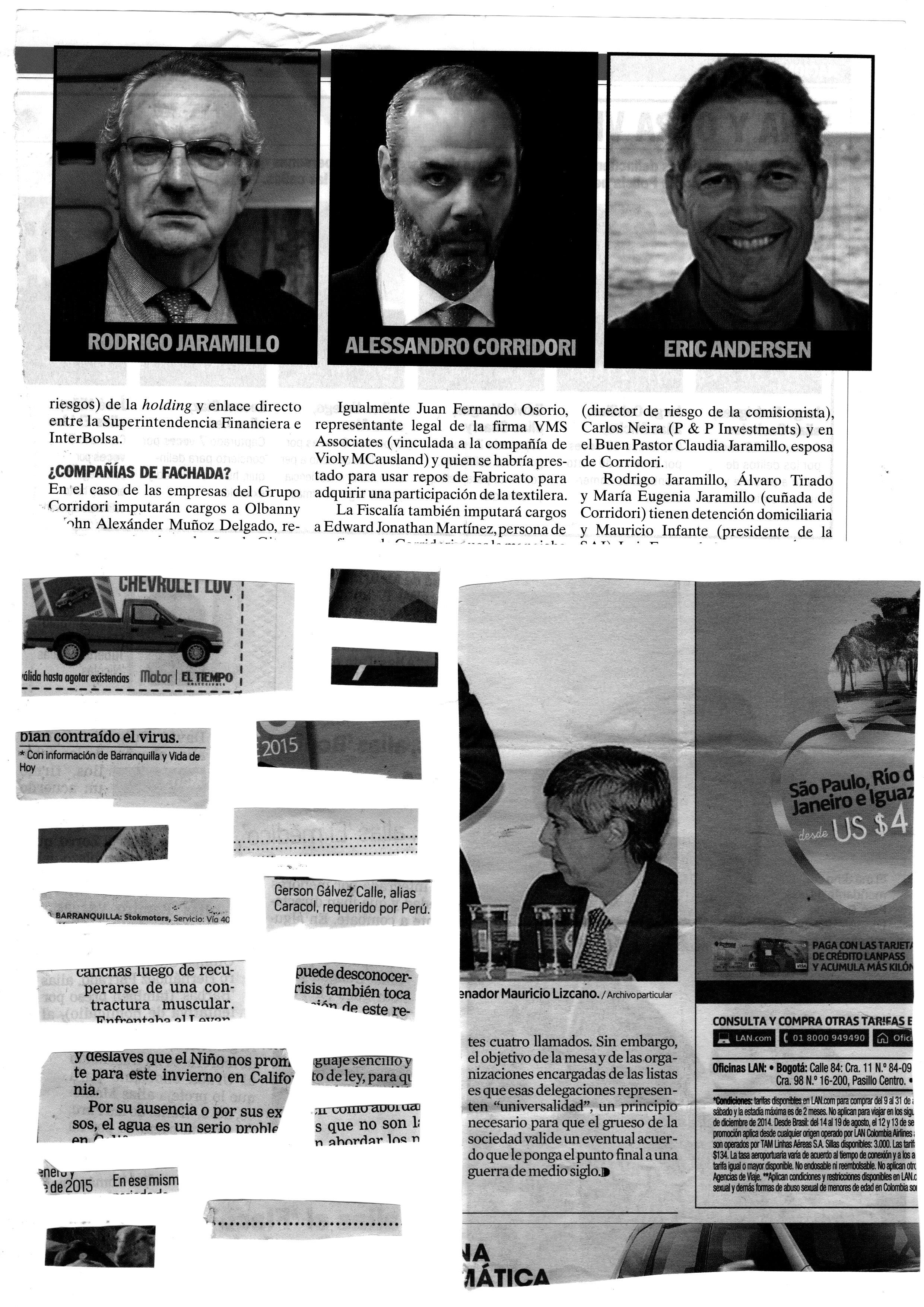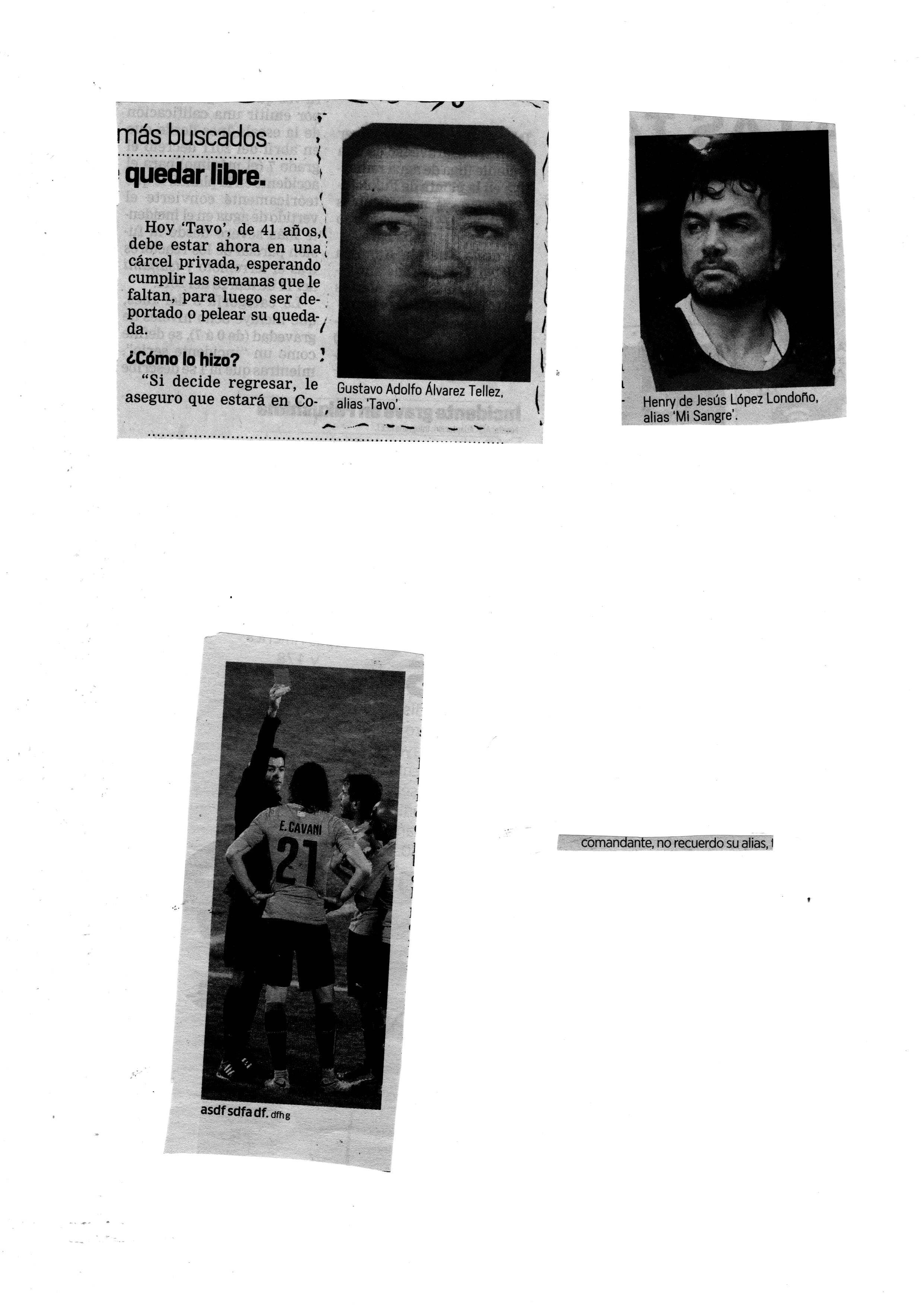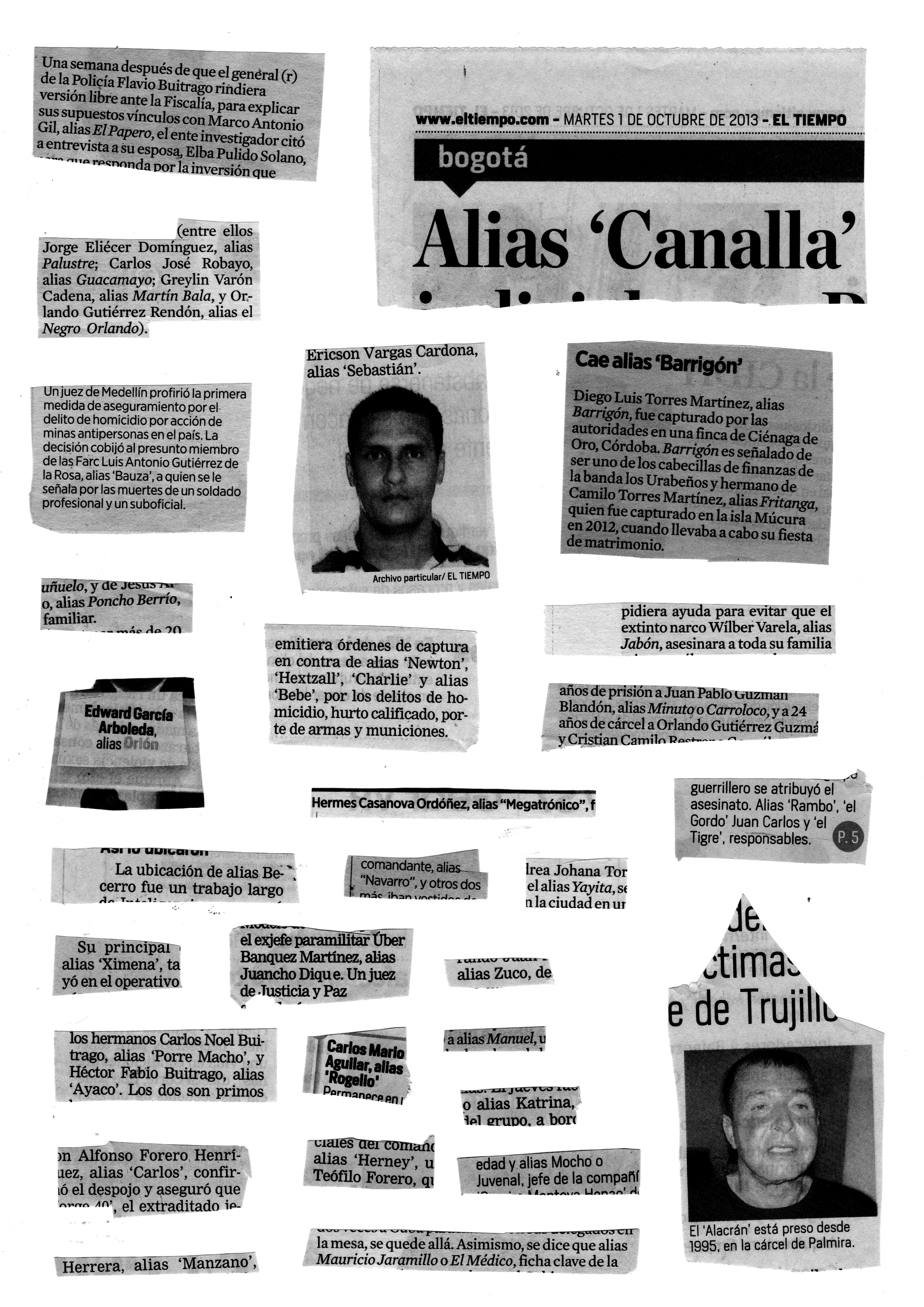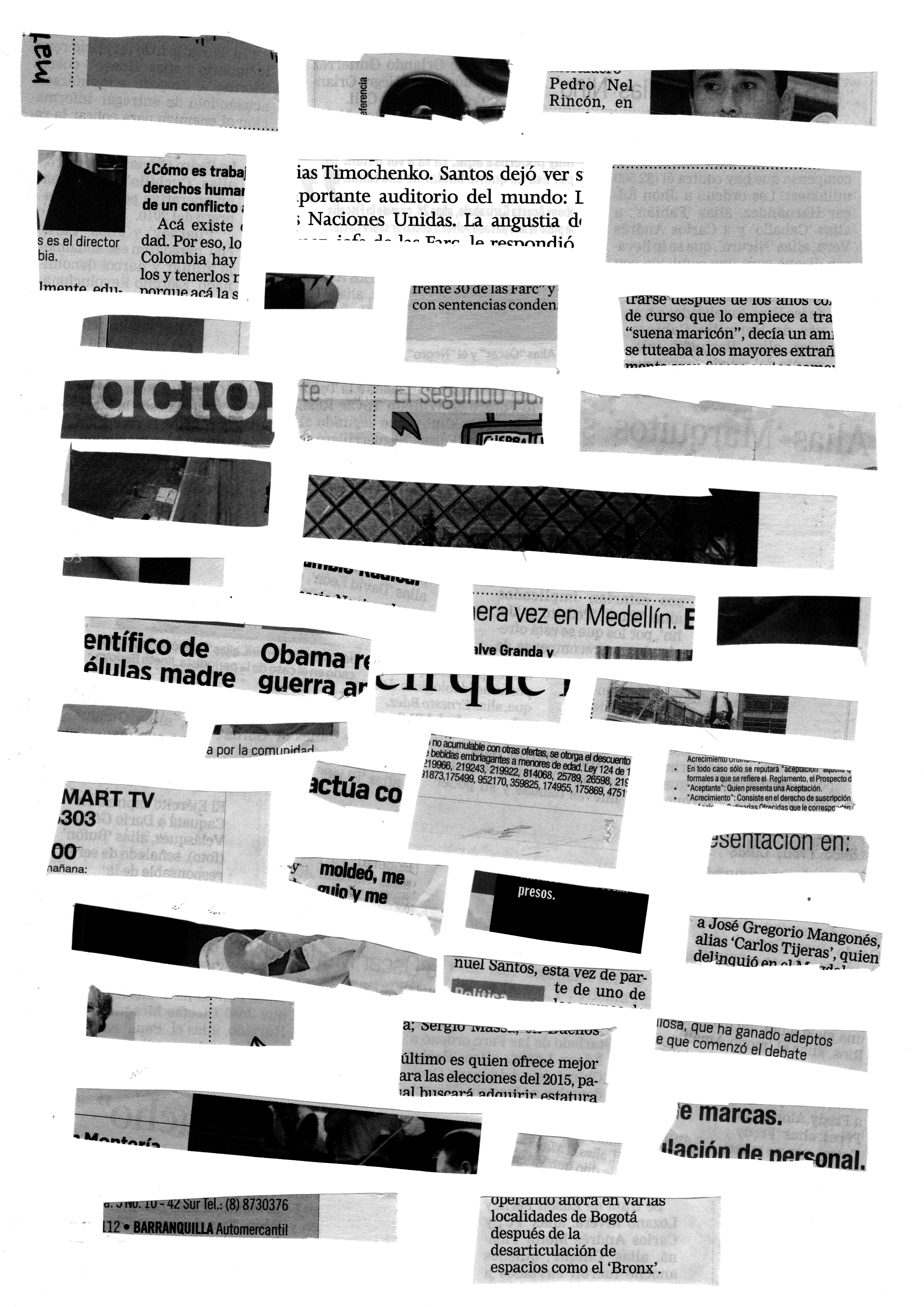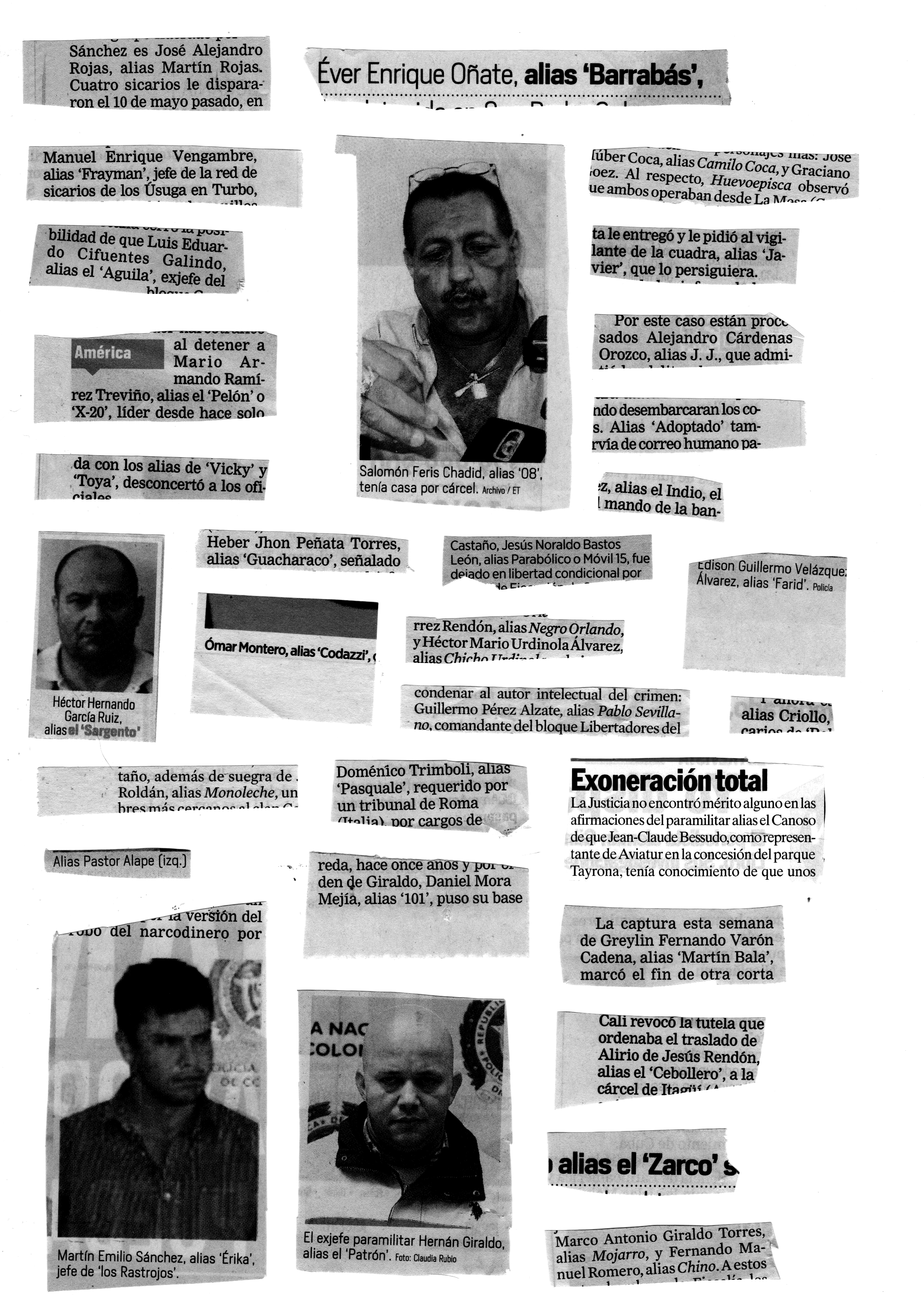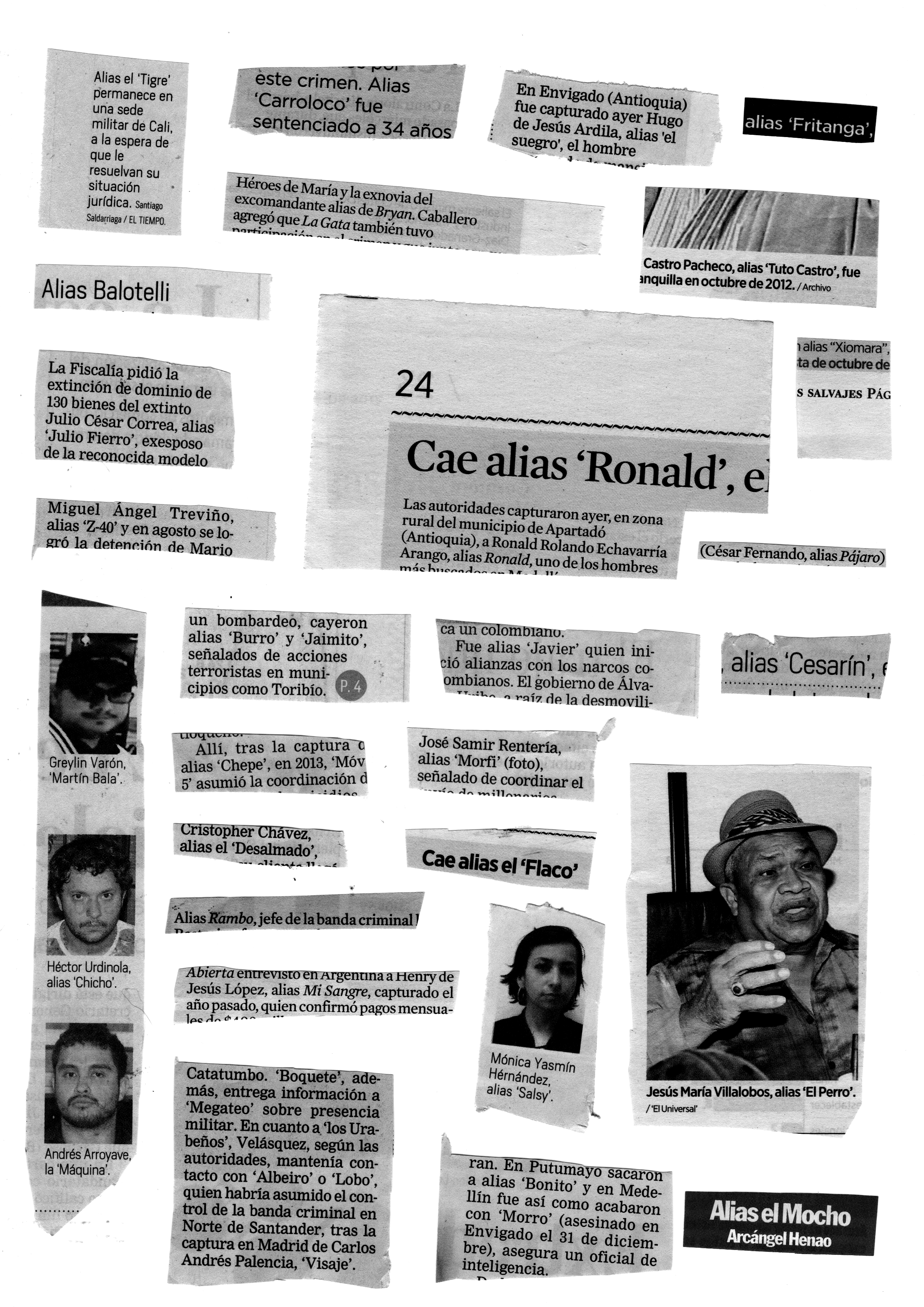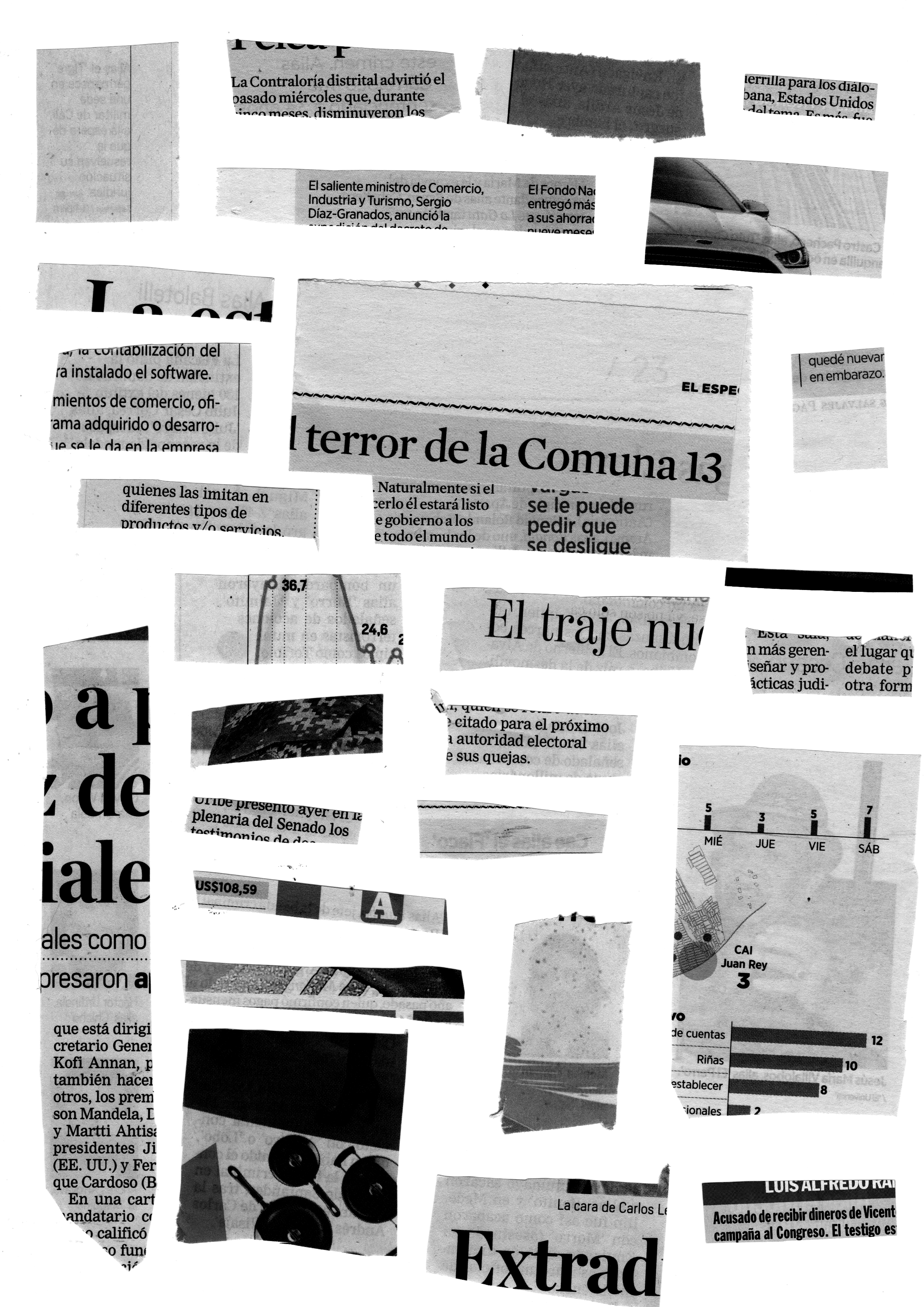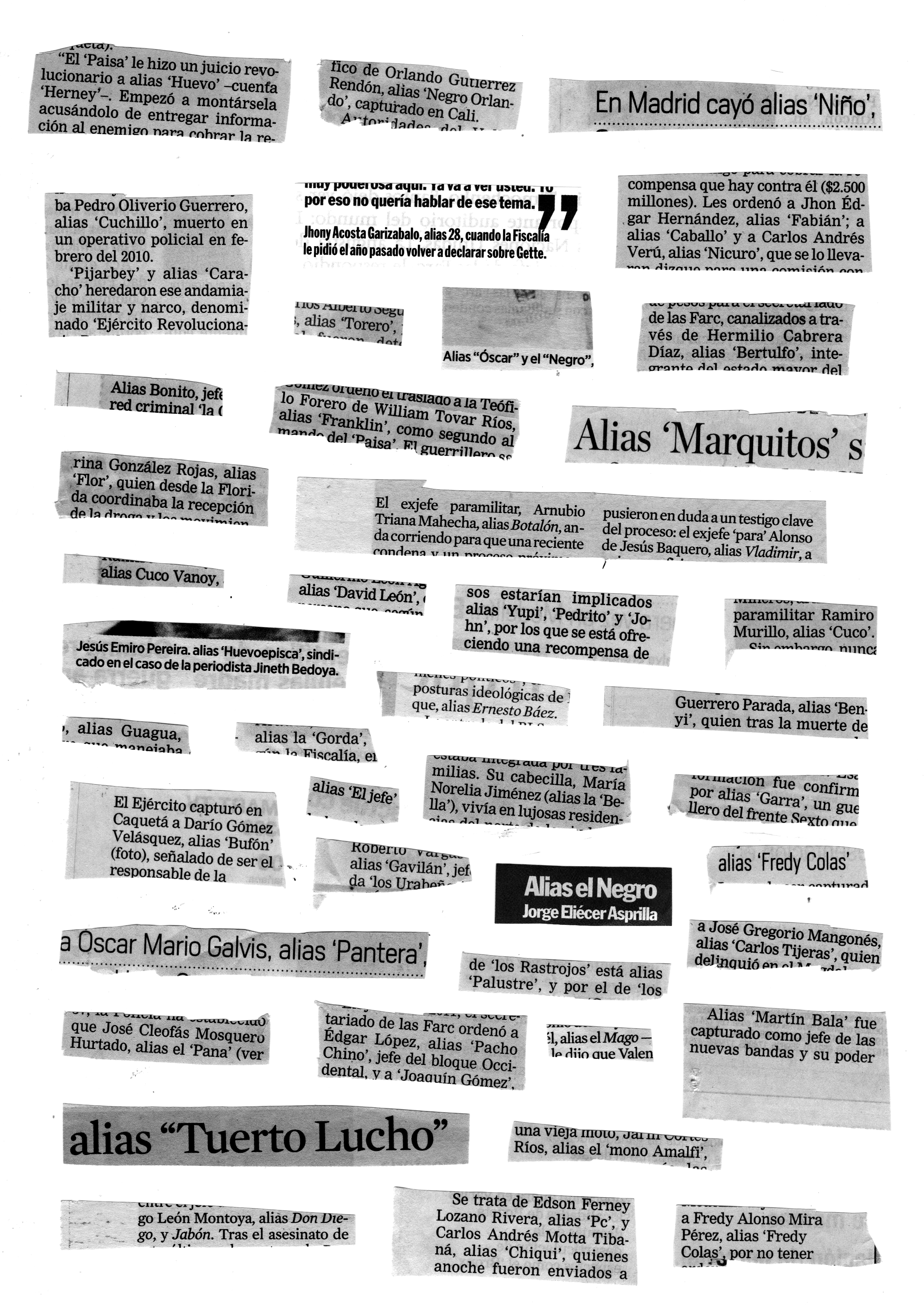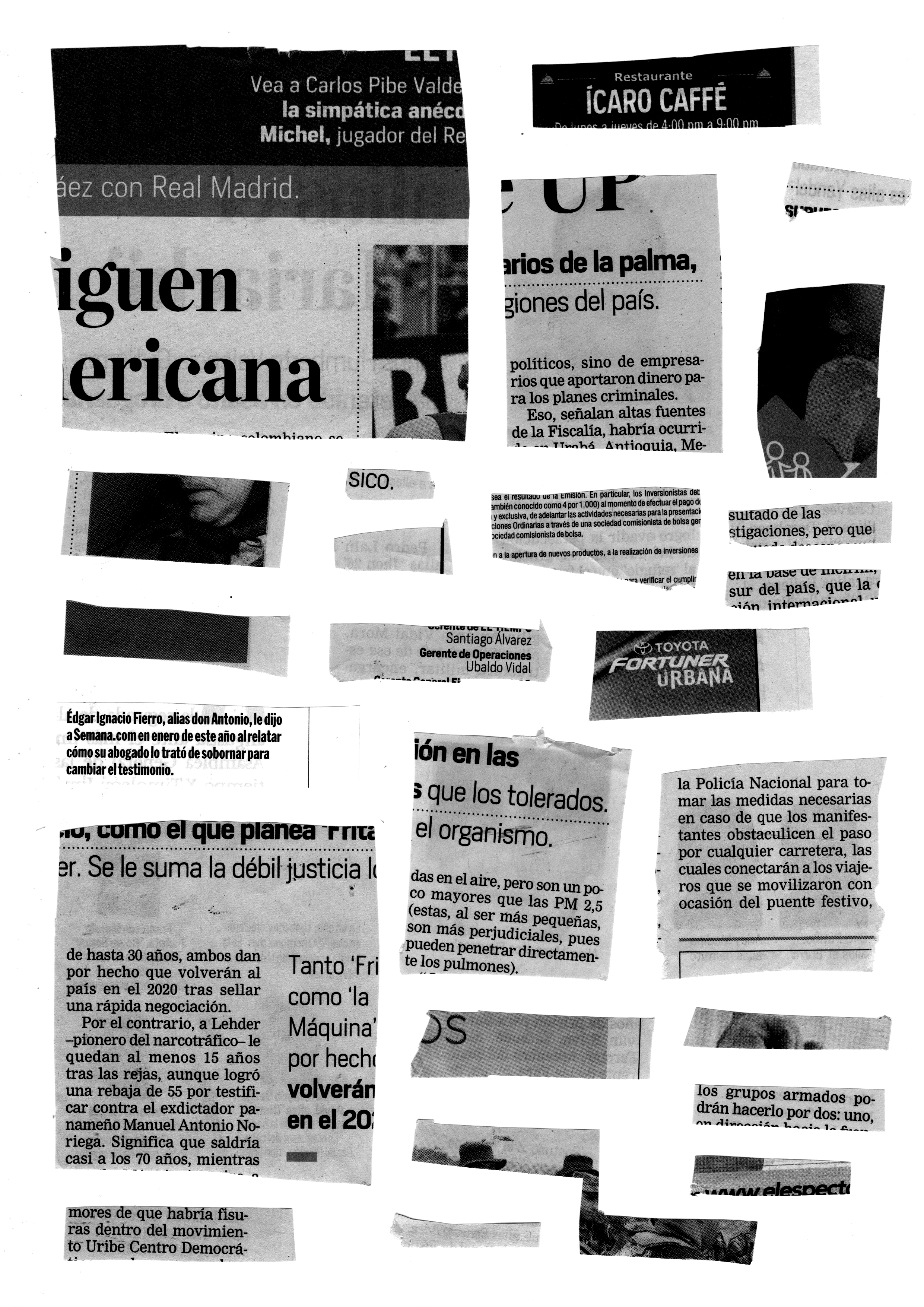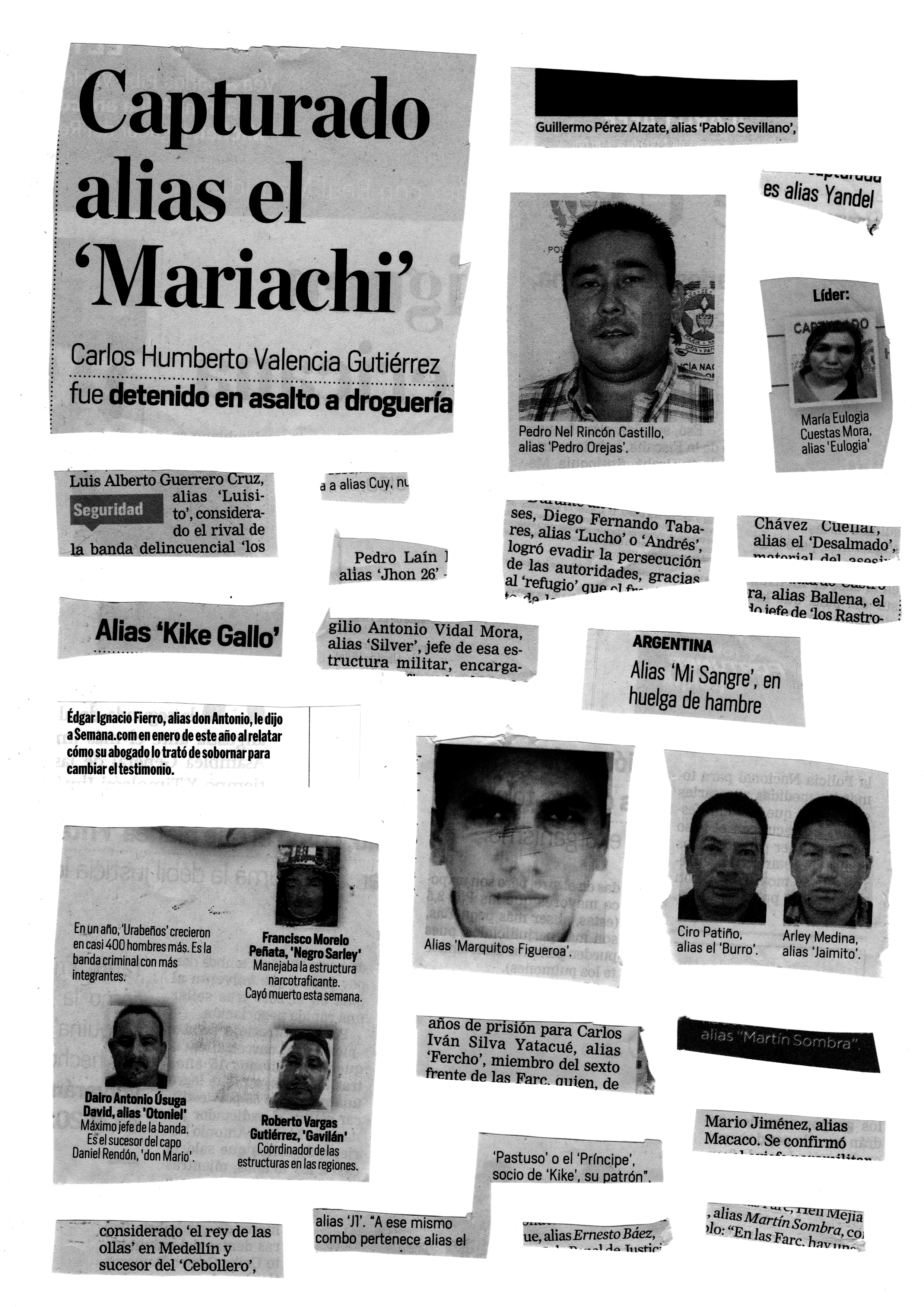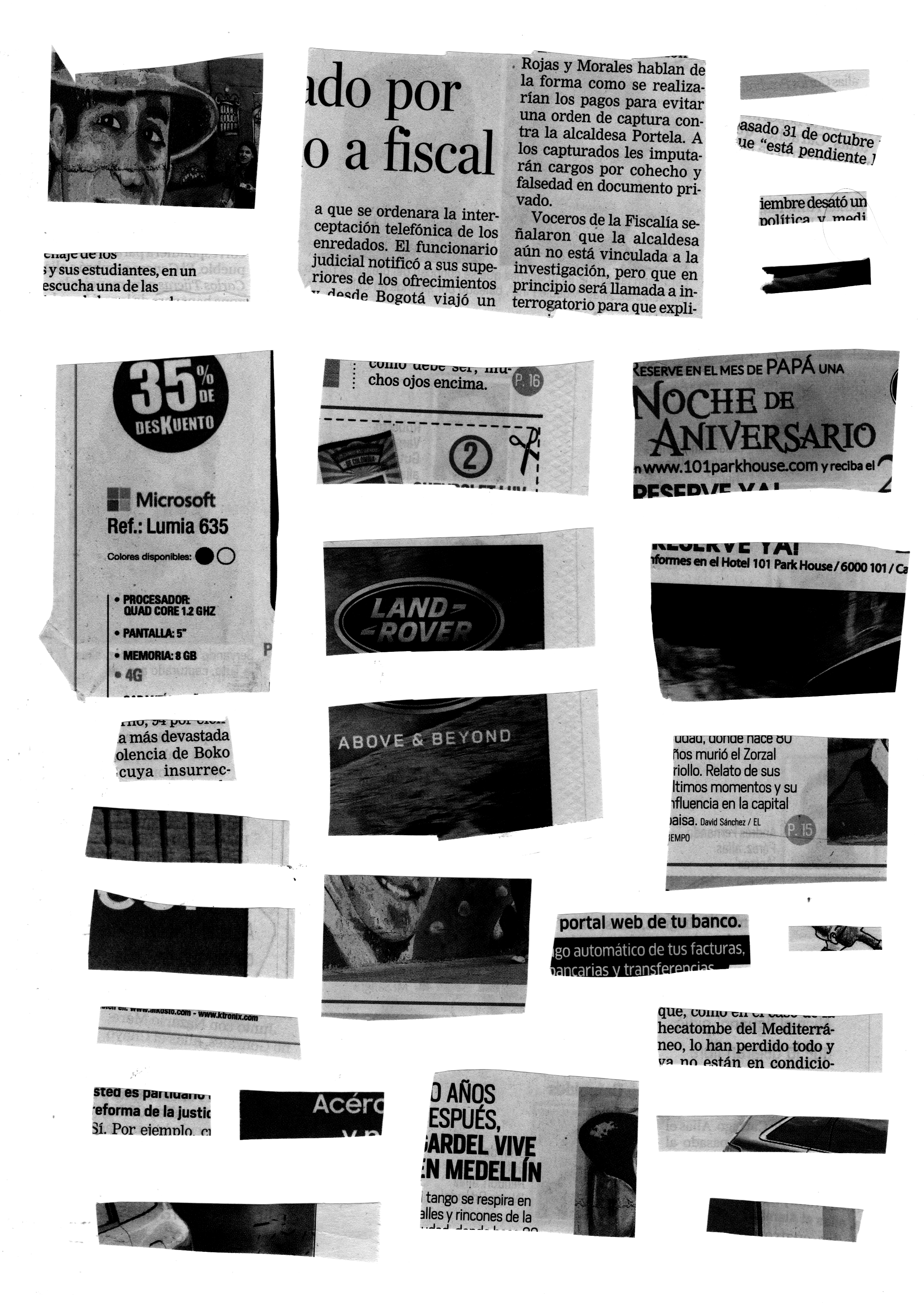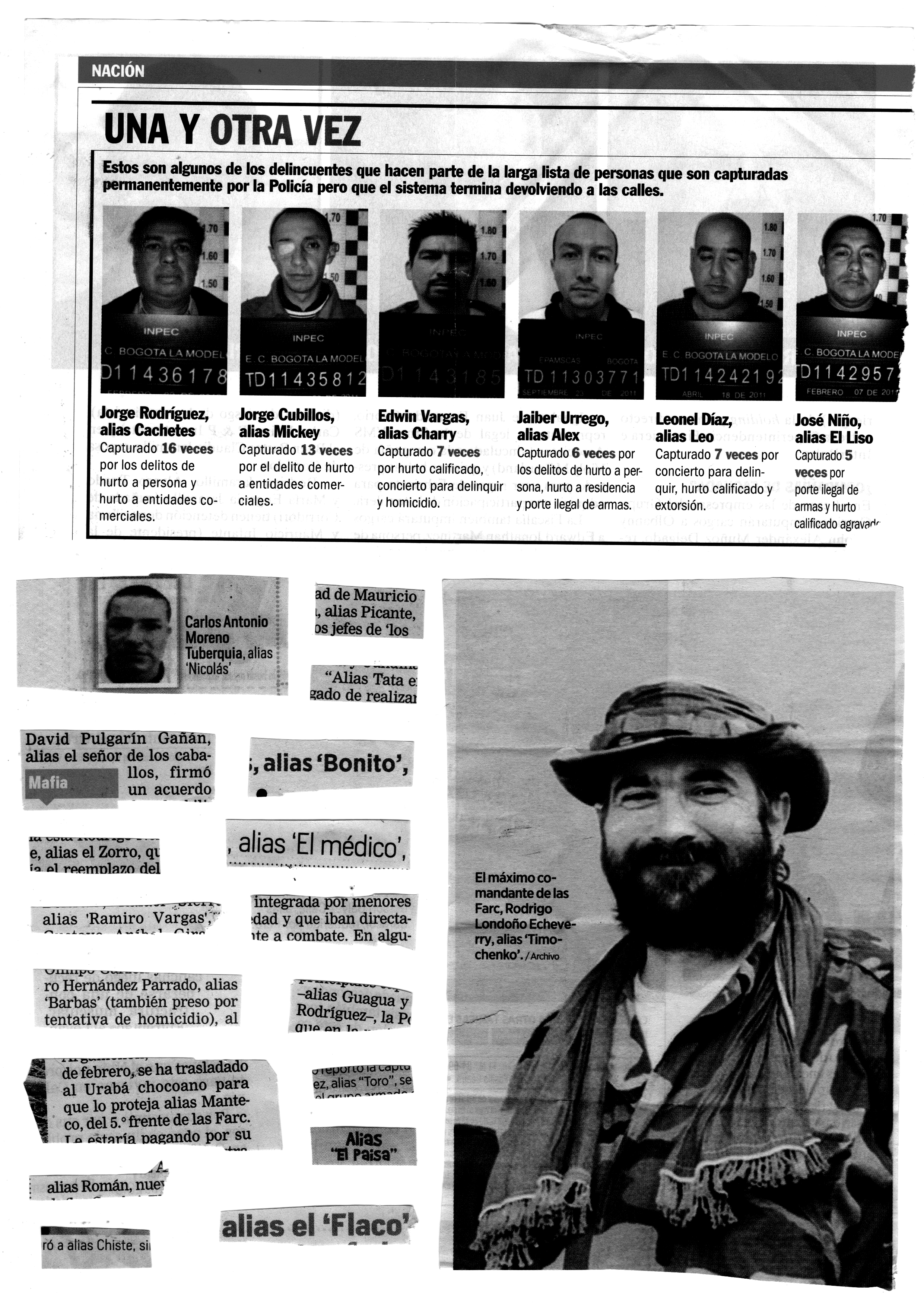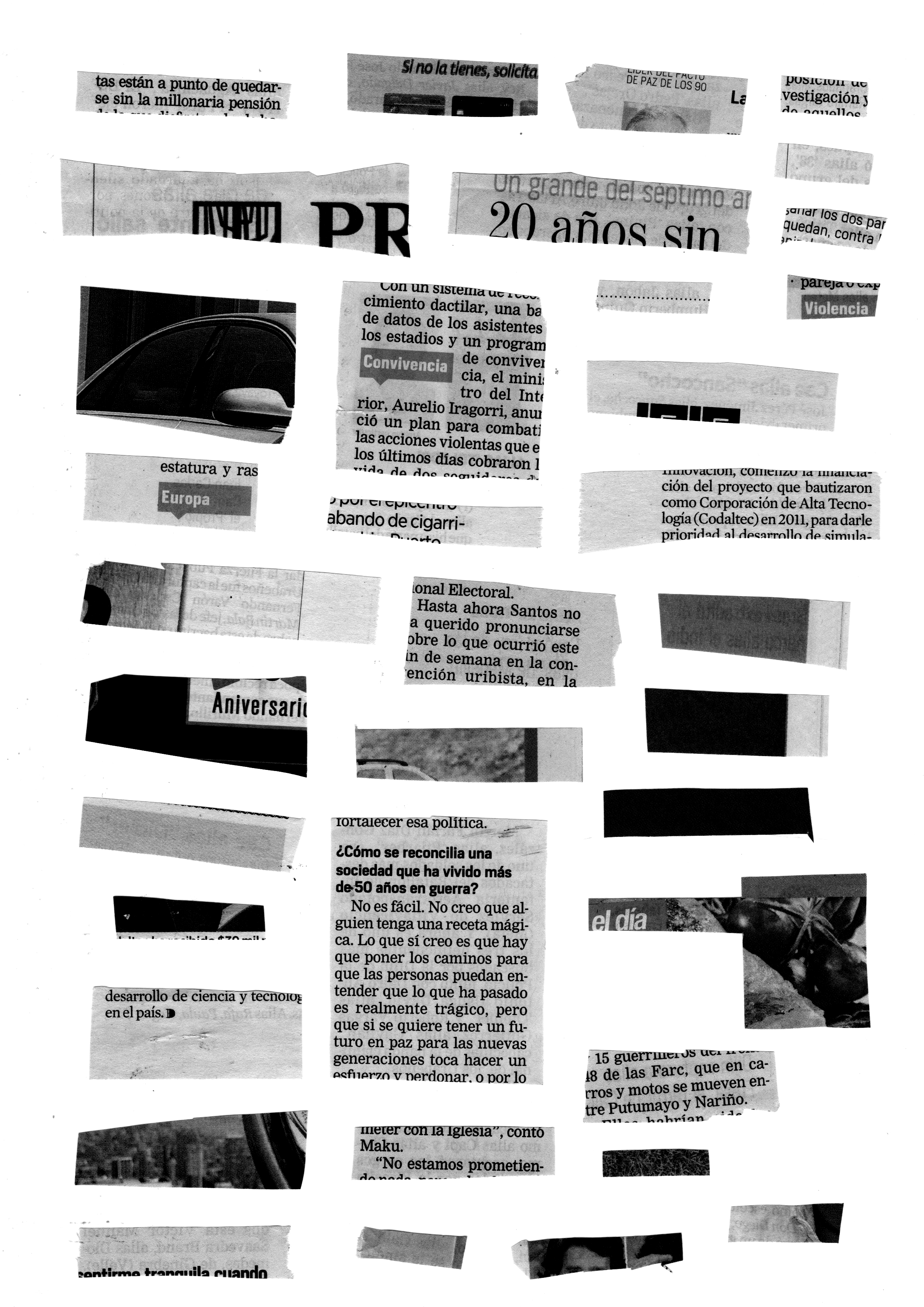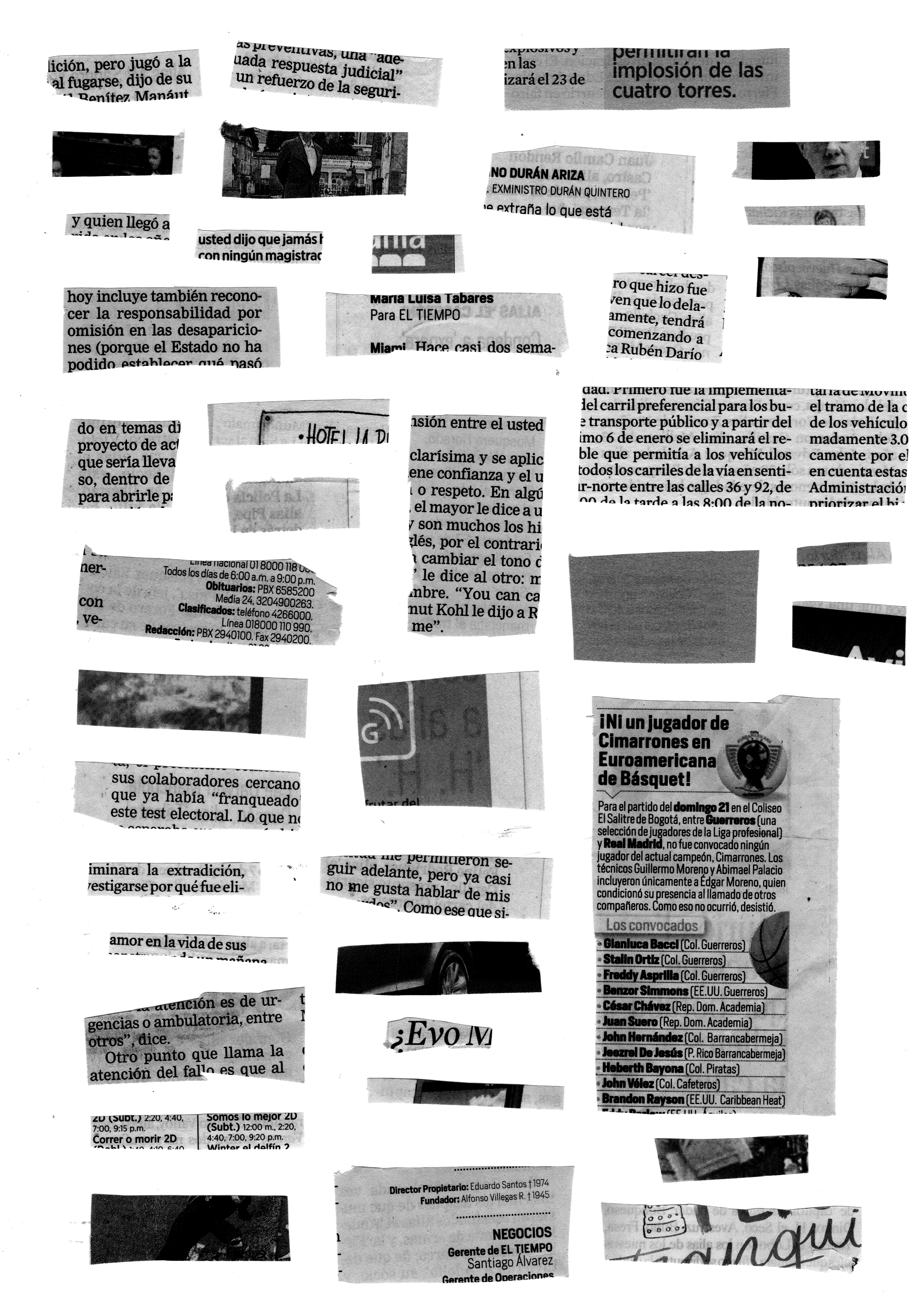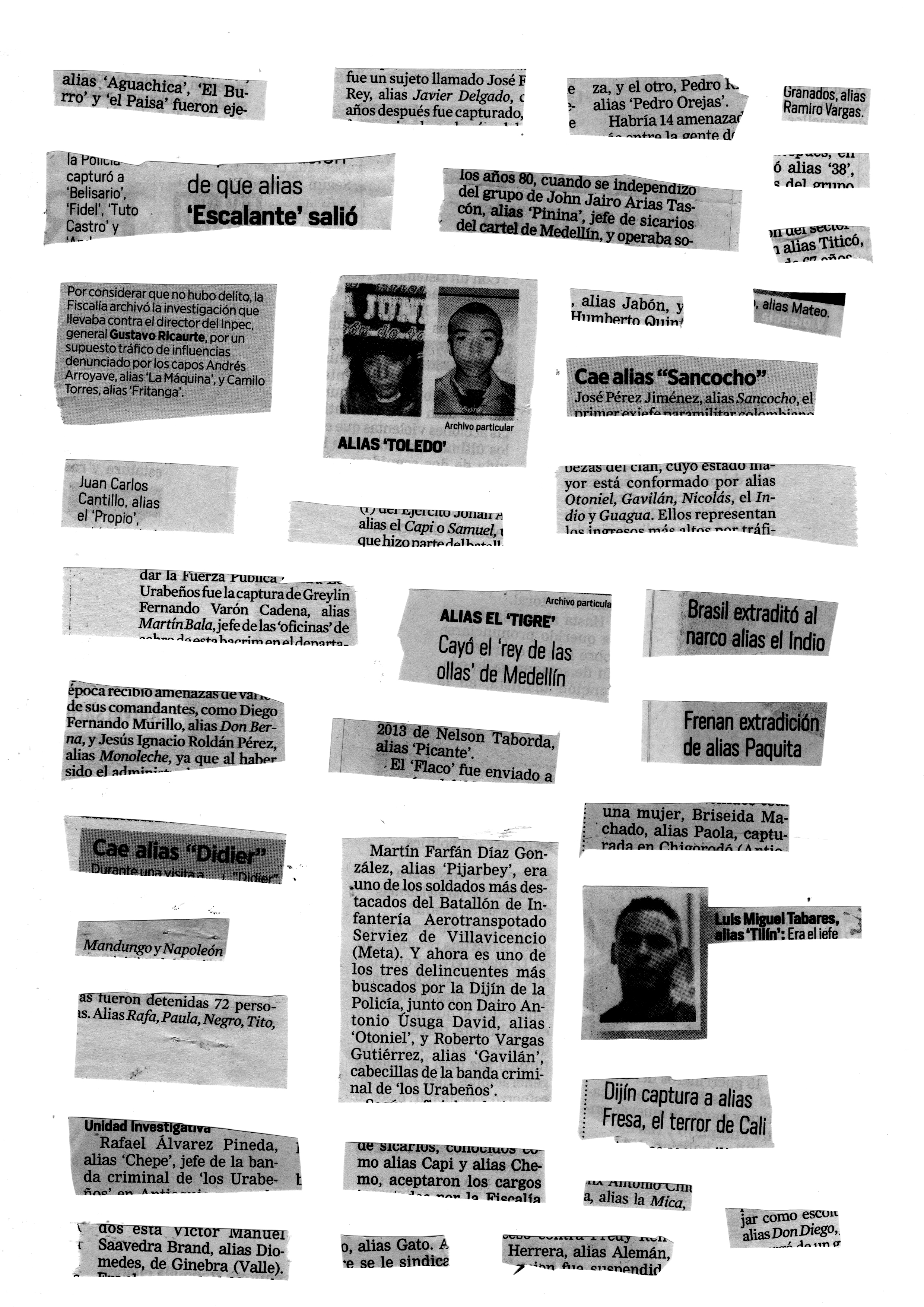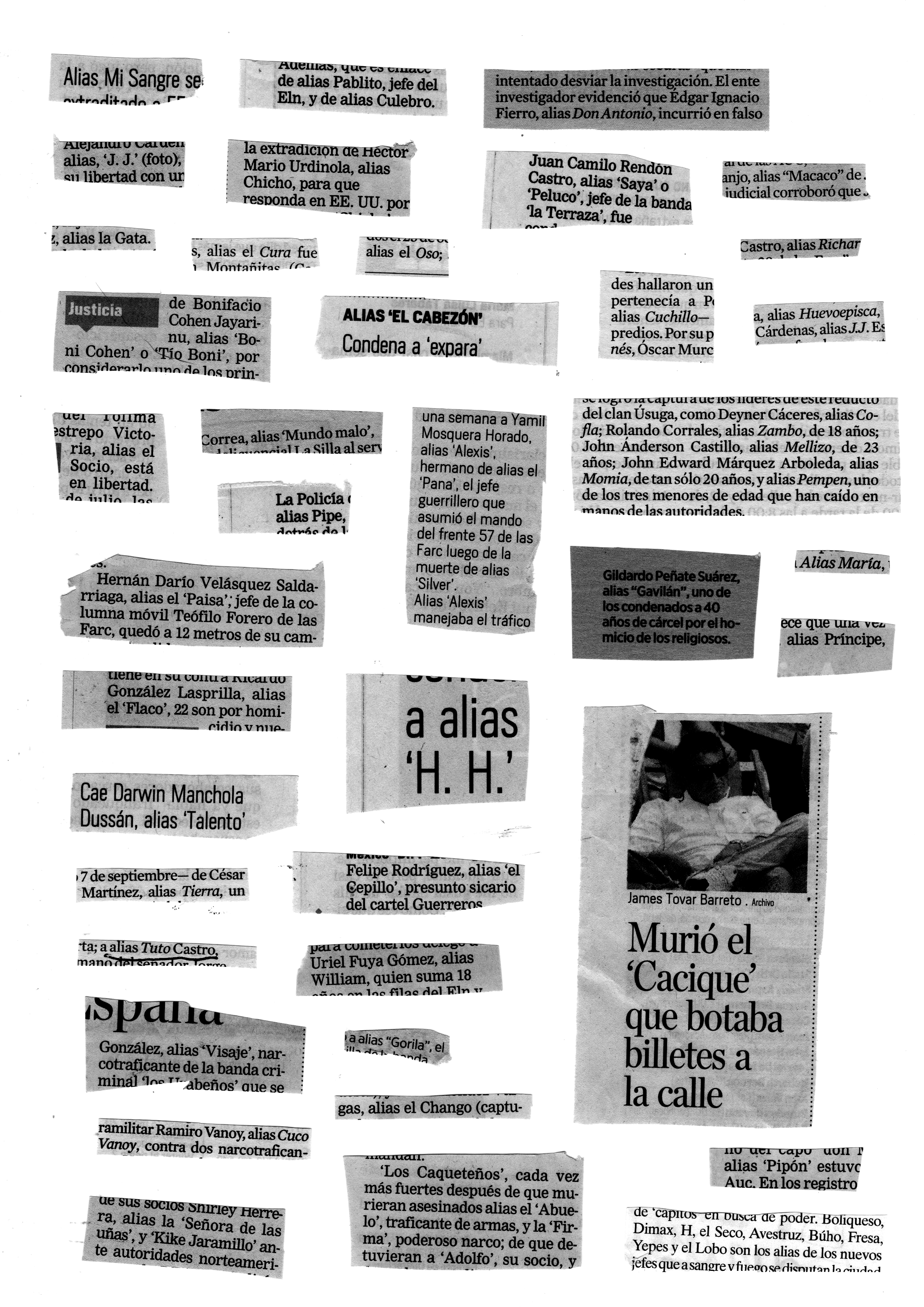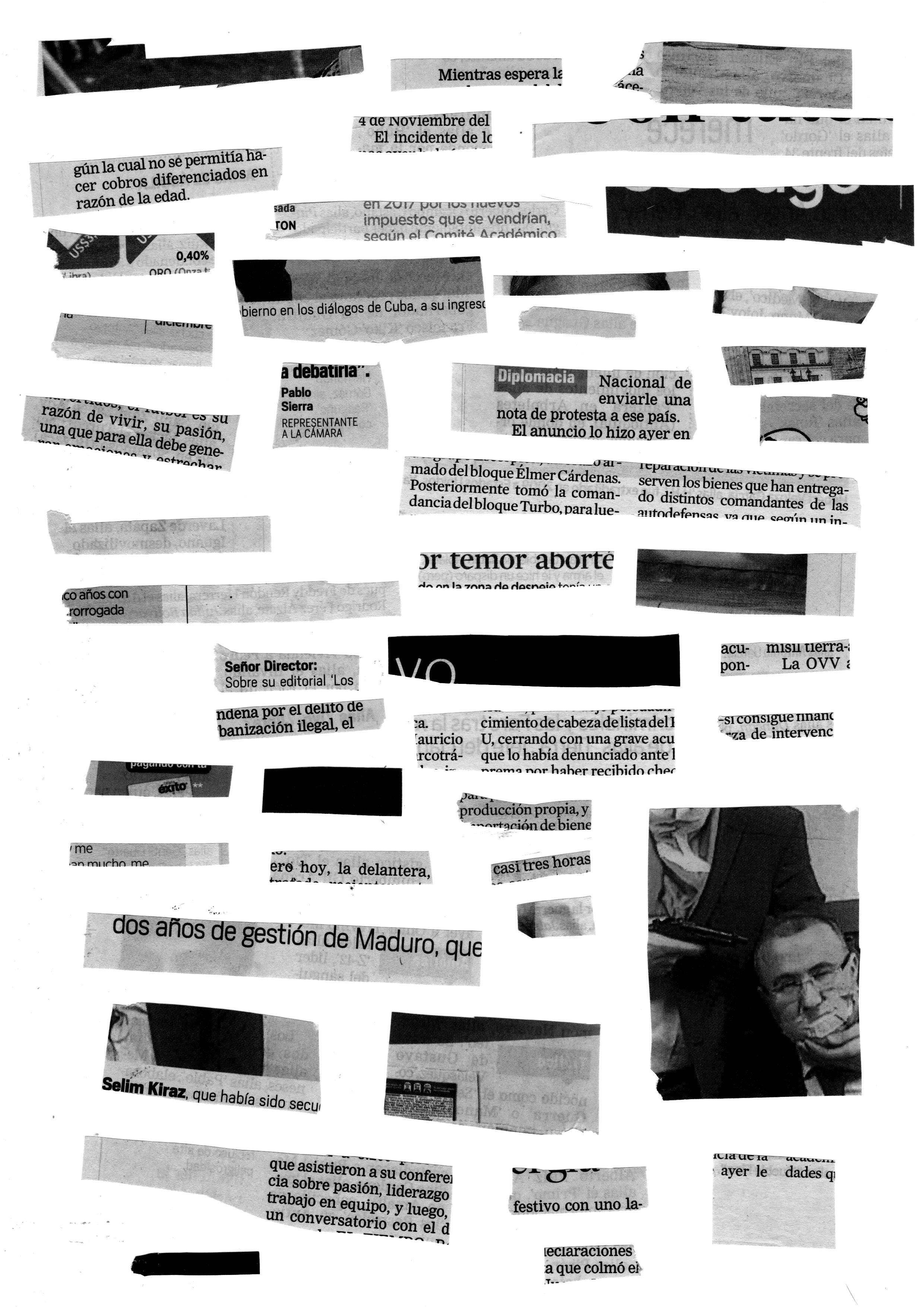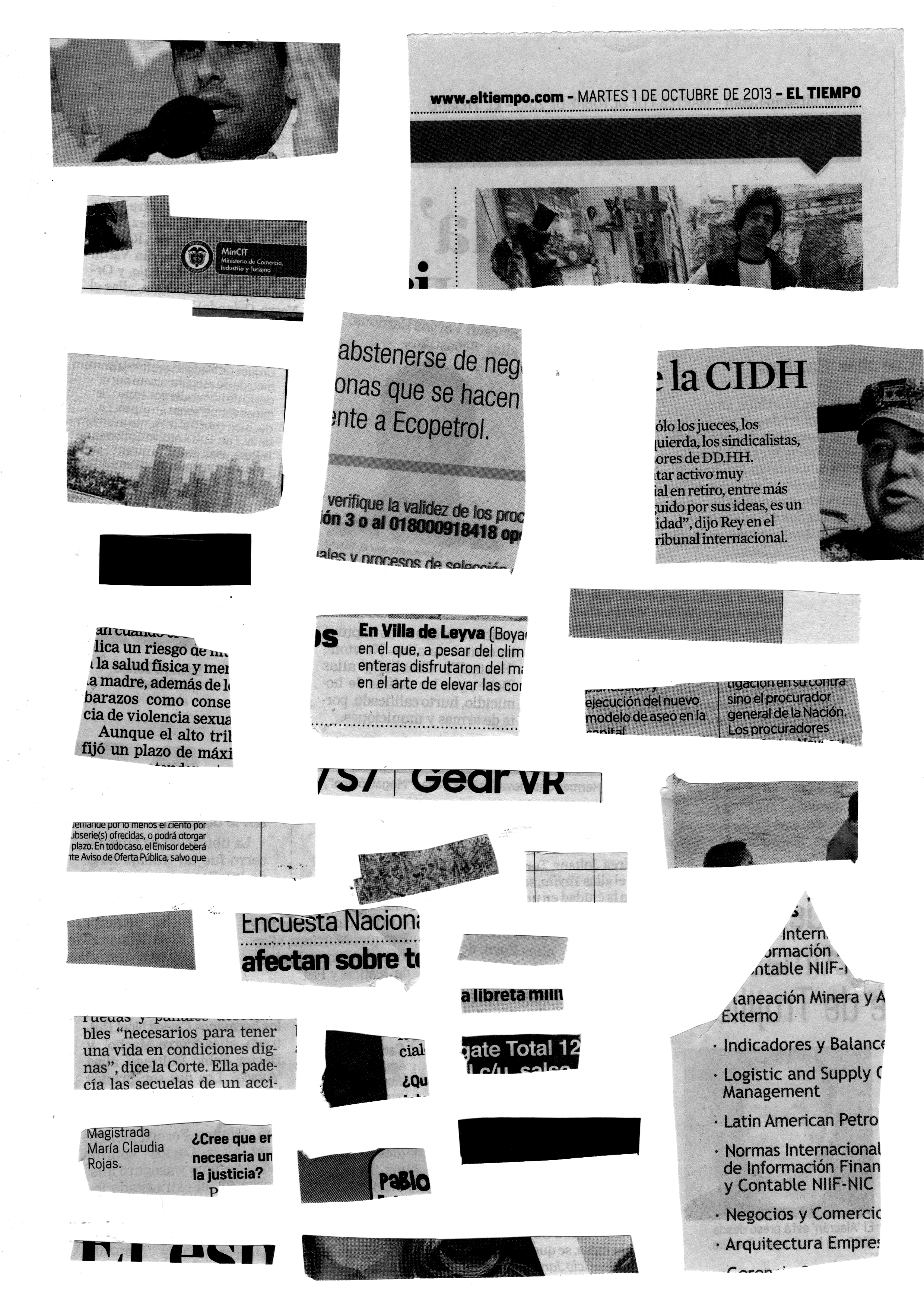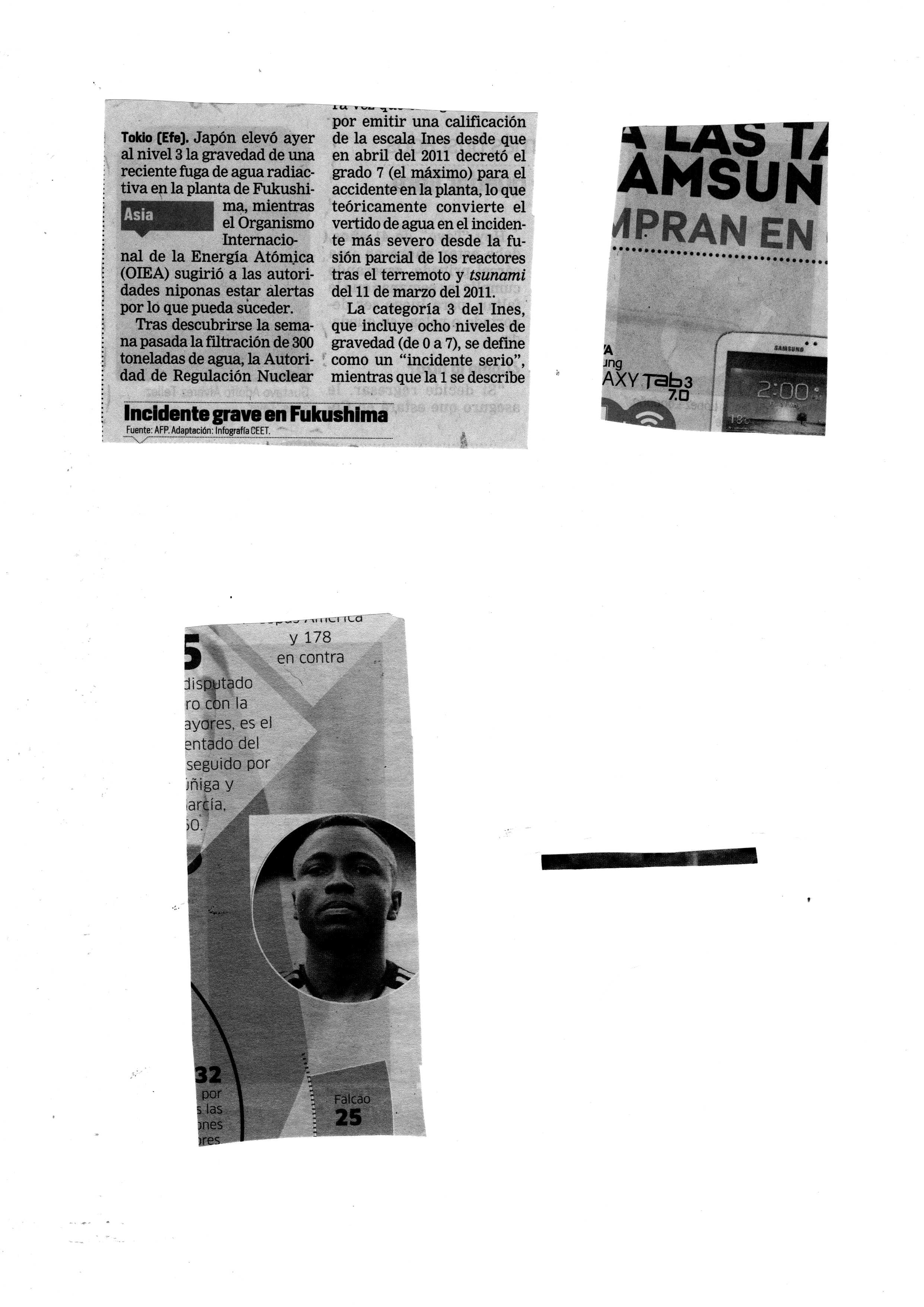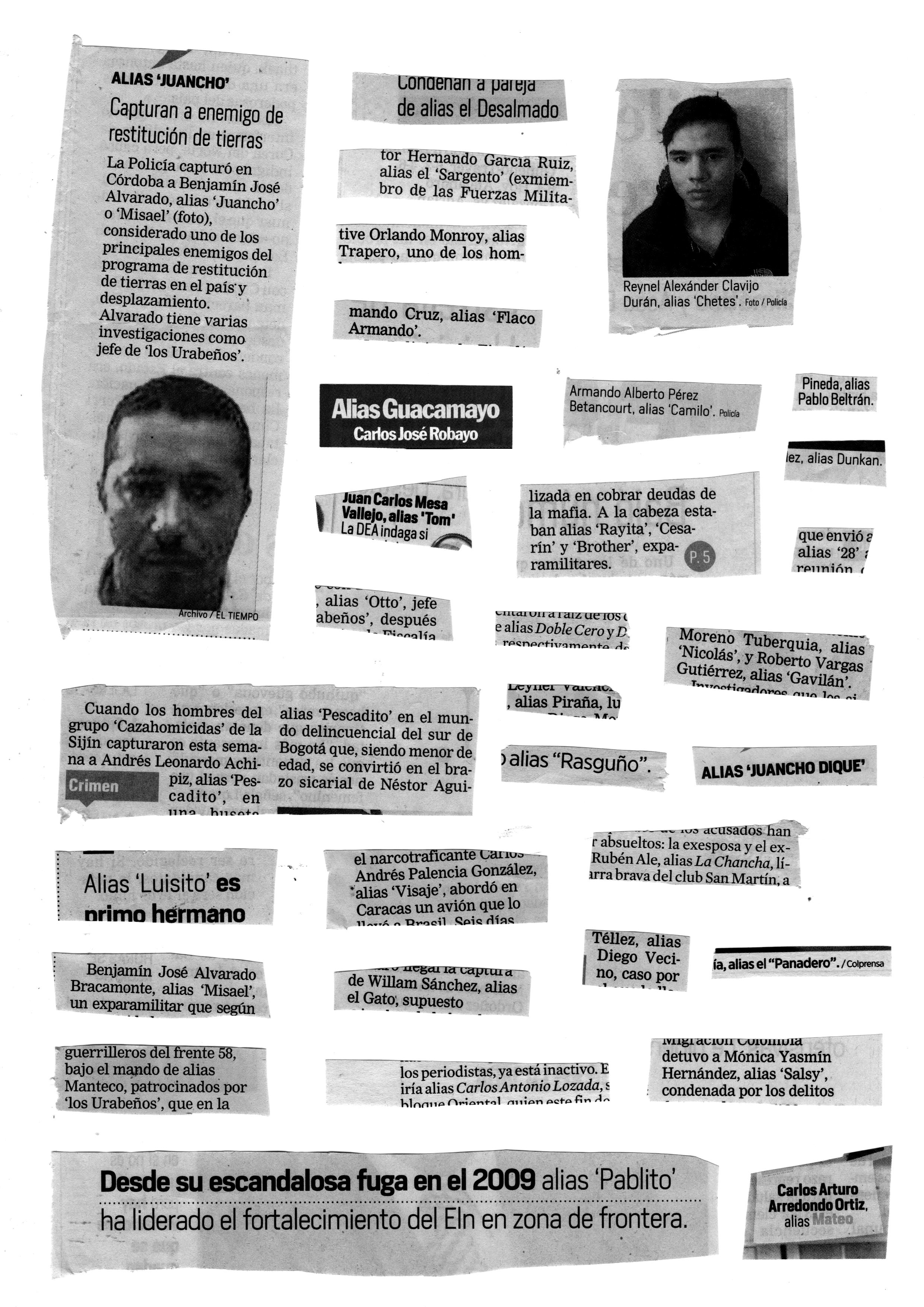Alias
Editorial, 2012-2017
A book from a collection of criminal names.
This work was done in collaboration with Alberto Miani, El Cajón Edit and Espacio el Dorado. Alias was launched in an exhibition right after Colombia’s peace treaty was signed with FARC. Espacio El Dorado. Bogotá, Colombia, 2017
* * *
“This book exhibits a vast and picturesque catalog of the criminal aliases that have adorned the history of
the armed conflict in Colombia. It is all the books and none of them at the same time, since its omission of an explanatory discourse supports infinite readings and interpretations. ALIAS is, in the first place, the affirmation that at this point and once and for all it would be convenient to begin to glimpse, the remarkable tragedies and unnamed atrocities of the conflict, a correlate, a subtext and a parallel history of violence that does not take place in the realm of the event, the catastrophe and the official, but in the context of the everyday. In other words, the book postulates the possibility for us to look not only at the atrocious events worthy of press releases, but also at the long catalog of our micro-violences, that is, those imperceptible dynamics of everyday life that the old violence has managed to permeate, inscribing itself in our cultural genetic map as a distinctive feature, a part of our being Colombians, an abstract violence that has come to define us in the most essential way. Notwithstanding the aforementioned exegesis, ALIAS can also be read as an academic document, a crude nomenclature of the conflict, an onomastic ethnography of violence, and a raw body of evidence that demands the granting of meaning by its interpreter. Thirdly, given the conjuncture and the use and abuse of certain categories, the book does not resist being conceived as a contribution to historical memory, since it leaves written forever the names of the perpetrators. The above are, undoubtedly, plausible hermeneutical options. However, it is also possible to assign to the book a fourth, much more modest function. A testimony of the comic dimensions of violence and, therefore, a violent act elevated to its second power, a mockery of the tragedy and, in that sense, a wink with hints of revictimization. Finally, although these uses are strictly reserved for cynics, ALIAS is a coffee table book and also a toilet book, or a pleasant reading for waiting rooms, especially recommended to proctologists and dentists. It should not be forgotten that, after all, among the proliferation of aliases, as jocular as they are infamous, there is nothing but noise with the appearance of meaning, the exhaustive record of a semantic void that could pass for coherent and that almost manages to simulate a message, which it renounces from the beginning.”
Samuel Baena, Lawyer and writer.
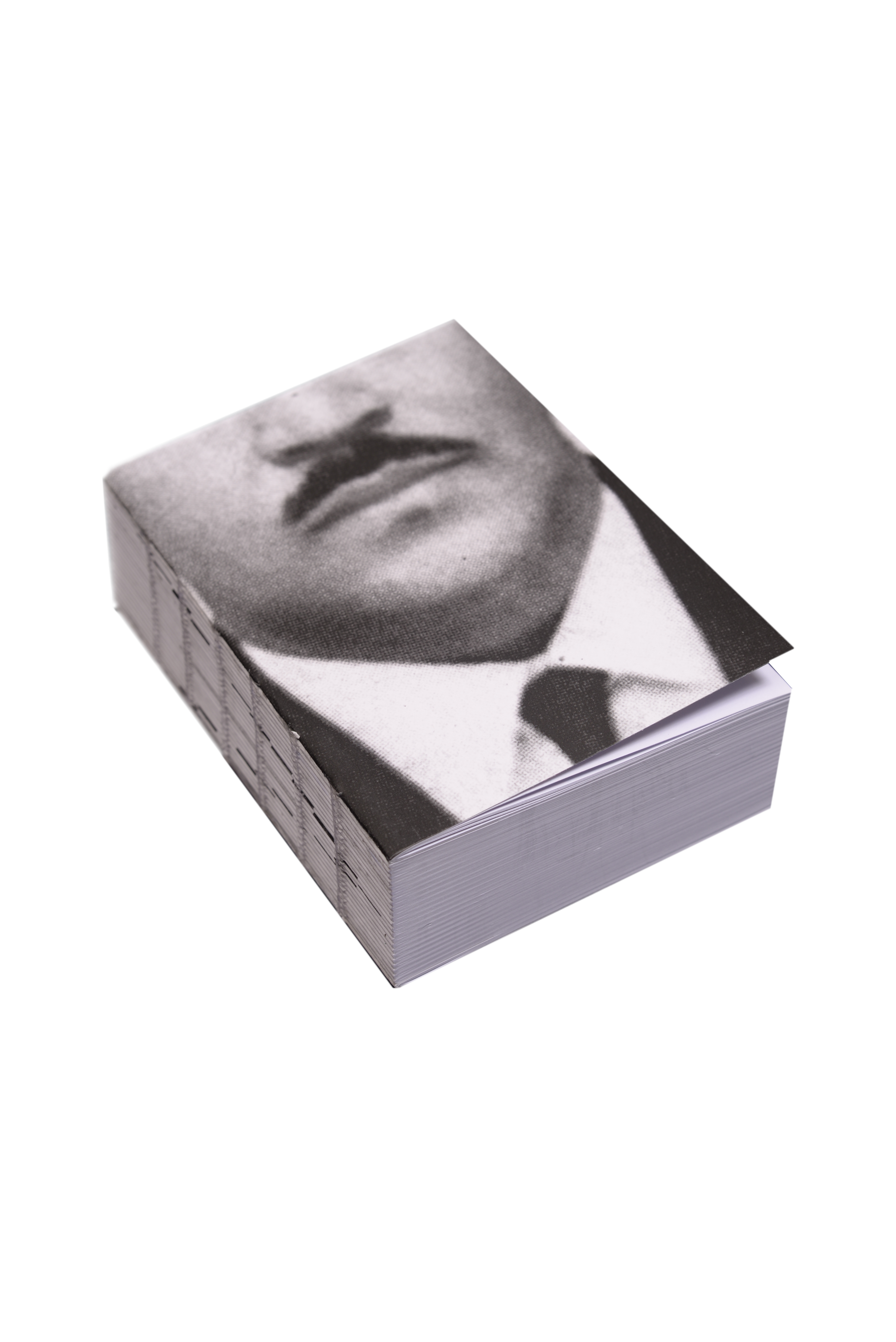
Around 800 Colombian newspaper cutouts, shape a five years compilation of “aliases” of the national conflict in Colombia and its criminal organizations. This collection became an editorial work that could be called a piece of hipper-realist design. Both faces of the small pieces of paper are reproduced in their original sizes. One “alias” per sheet, one face per page, 800 pages.
Around 800 Colombian newspaper cutouts, shape a five years compilation of “aliases” of the national conflict in Colombia and its criminal organizations. This collection became an editorial work that could be called a piece of hipper-realist design. Both faces of the small pieces of paper are reproduced in their original sizes. One “alias” per sheet, one face per page, 800 pages.
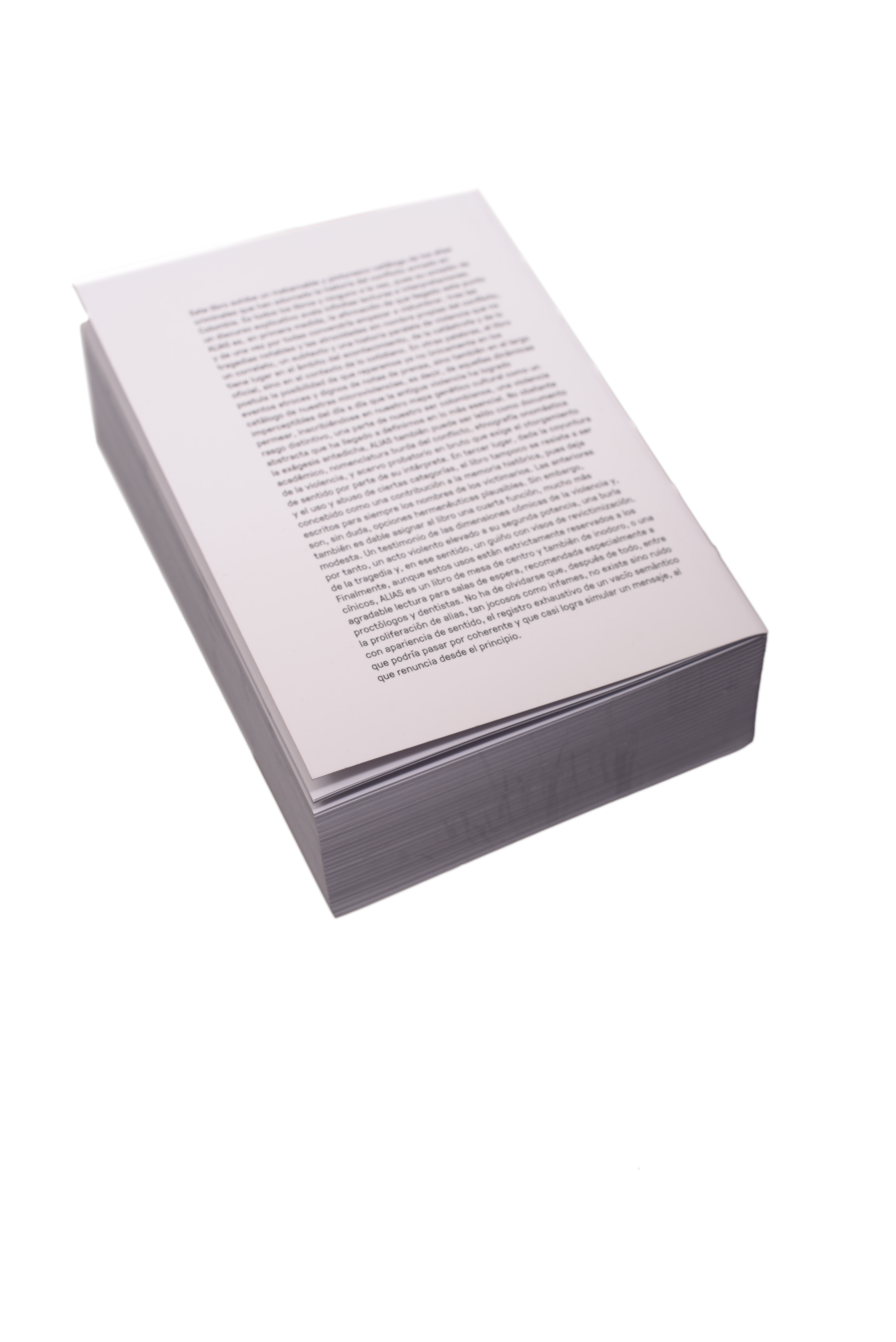

“To me, the exercise of documenting violence gained significance in the quest of truth and reconciliation.”
